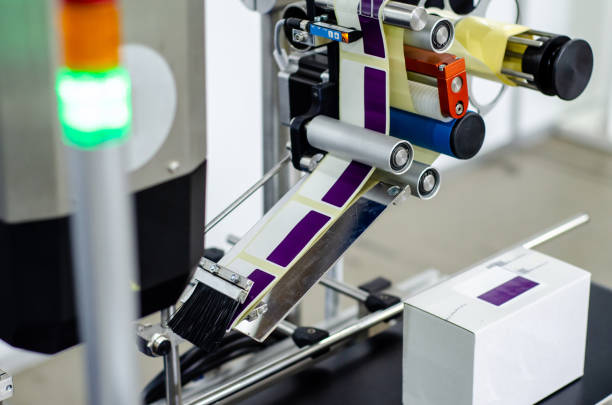Product label printing is essential for businesses in Sharjah. Labels provide information, attract customers, and comply with regulations. Whether you run a small shop or a large company, choosing the right label printing method is crucial.
This guide explores the key techniques, materials, and best practices for product label printing in Sharjah.
Why Product Label Printing Matters
Product labels serve several purposes, including:
- Branding – They create a visual identity for your products.
- Compliance – They include important details like ingredients, expiry dates, and safety warnings.
- Customer Engagement – Well-designed labels attract buyers and build trust.
Using the right printing method ensures durability, clarity, and cost-effectiveness.
Common Product Label Printing Techniques
Different printing techniques are used based on material, budget, and quantity. Here are the most popular methods:
Digital Printing
Digital printing is widely used for short-run label production. It offers high-quality results with quick turnaround times.
Benefits:
- Cost-effective for small batches
- Vibrant colors with sharp details
- Quick production with minimal setup
Best for:
- Custom labels
- Limited-edition packaging
- Variable data printing (barcodes, serial numbers)
Flexographic Printing
Flexographic printing is a traditional method used for large-scale production. It involves flexible plates that transfer ink onto the label material.
Benefits:
- Ideal for high-volume printing
- Works with a variety of materials
- Long-lasting prints
Best for:
- Food and beverage packaging
- Pharmaceutical labels
- Retail product labels
Offset Printing
Offset printing is known for its high-resolution output and cost-effectiveness for bulk orders. It uses printing plates and ink rollers to produce sharp images.
Benefits:
- Excellent color accuracy
- Cost-effective for large runs
- Suitable for intricate designs
Best for:
- High-end product packaging
- Luxury brand labels
- Mass production
Thermal Printing
Thermal printing is used for barcode labels, shipping labels, and retail tags. It involves heat-sensitive materials that react to a thermal printhead.
Benefits:
- Fast and efficient
- No need for ink or toner
- Ideal for simple, functional labels
Best for:
- Barcode and QR code labels
- Logistics and warehouse labels
- Price tags
Screen Printing
Screen printing is a durable method used for labels requiring resistance to heat, moisture, or chemicals. It applies ink through a mesh stencil onto the label surface.
Benefits:
- Long-lasting and weather-resistant
- Vibrant and thick ink application
- Ideal for specialty labels
Best for:
- Industrial and automotive labels
- Outdoor product labels
- Chemical-resistant labels
Choosing the Right Material for Product Labels
The choice of label material impacts durability and appearance. The most common materials include:
Paper Labels
- Affordable and easy to print
- Best for indoor use
- Not resistant to water or chemicals
Vinyl Labels
- Waterproof and weather-resistant
- Highly durable
- Ideal for outdoor products
Polyester Labels
- Strong and heat-resistant
- Commonly used for industrial applications
- Provides a sleek, professional look
Clear Labels
- Creates a “no-label” look
- Ideal for glass and plastic packaging
- Popular for beauty and skincare products
Foil Labels
- Enhances product aesthetics
- Often used for luxury brands
- Adds a premium feel to packaging
Best Practices for Product Label Printing in Sharjah
To ensure your product labels meet industry standards and consumer expectations, follow these best practices:
Choose High-Quality Printing Techniques
Use professional printing methods to ensure sharp details, vibrant colors, and long-lasting results.
Select the Right Adhesive
Different adhesives work for different environments. Consider:
- Permanent adhesive – Sticks firmly and lasts long.
- Removable adhesive – Peels off without residue.
- Weatherproof adhesive – Suitable for outdoor use.
Use Legible Fonts and Colors
Your label must be easy to read. Choose clear fonts and contrast colors for better visibility. Avoid overly decorative fonts that reduce readability.
Include Mandatory Information
Ensure your labels meet local regulations in Sharjah. Essential details include:
- Product name
- Ingredients or materials
- Manufacturing and expiry dates
- Batch number and barcode
- Usage instructions and warnings
Optimize for Environmental Factors
Consider temperature, moisture, and handling conditions when selecting label materials. Use lamination or UV coatings for extra durability.
Invest in Sustainable Label Printing
Eco-friendly labels are gaining popularity in Sharjah. Use biodegradable materials and recyclable inks to reduce environmental impact.
Test Before Finalizing
Print sample labels before full production. Check:
- Adhesion strength
- Print quality
- Smudge resistance
- Legibility under different lighting conditions
Trends in Product Label Printing in Sharjah
Sharjah’s market is evolving with modern printing trends. Businesses are adopting:
- Smart labels – QR codes and NFC tags for digital interaction
- Minimalist designs – Clean, simple labels for premium branding
- Sustainable materials – Eco-friendly alternatives like plant-based inks
- Personalized labels – Custom packaging for seasonal promotions
Conclusion
The Complete Guide to Types of Label Printing: Technologies Explained, compliance, and customer engagement. Choosing the right printing technique, material, and design ensures high-quality results.
By following best practices and industry trends, businesses in Sharjah can create durable, eye-catching, and informative labels that enhance product appeal.

